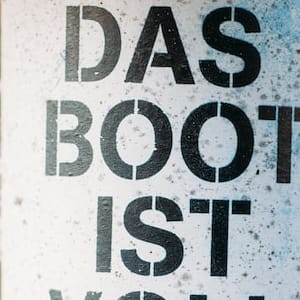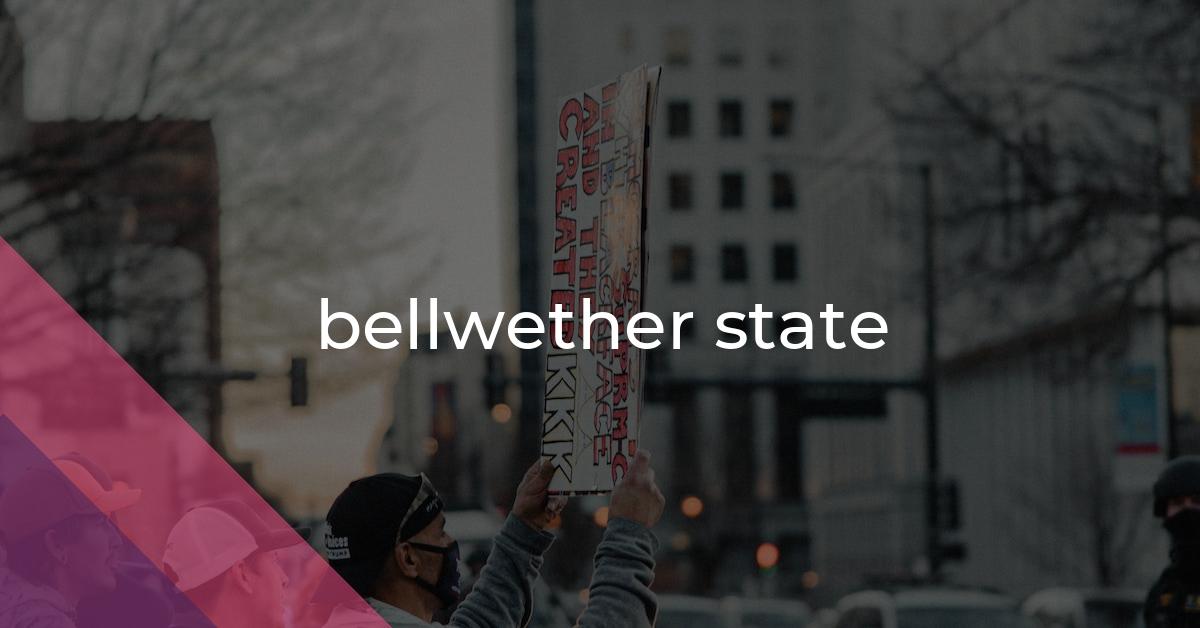bellwether state: Idiom Meaning and Origin
What does ‘bellwether state’ mean?
The idiom "bellwether state" refers to a state that is seen as a predictor or indicator of the outcome of a larger event or trend, particularly in politics or elections.

Idiom Explorer
The idiom "sign of the times" refers to a current event, trend, or situation that is indicative of the prevailing attitudes, values, or circumstances of a particular period in history.
The idiom "in a state" means to be in a state of distress, anxiety or confusion.
The idiom *death knell* refers to a sign or event that signals the end or downfall of something, often used to describe the final blow for a particular idea, plan, or institution.
The idiom "buck the trend" means to go against the prevailing direction or behavior, often with positive or successful outcomes, challenging the norm or common expectations.
The idiom "big name" is used to describe a person or organization that is famous or well-known, often due to their achievements, reputation, or public recognition.
The idiom "big fish" refers to an important or influential person. It suggests that this person has power, authority, or a high status, often in a specific context or industry.
The idiom "big boys" is used to refer to influential or powerful individuals or companies. It implies that these individuals or companies are significant players in a specific field or industry.
The idiom "be that as it may" is used to acknowledge and temporarily set aside a previous statement or argument, often implying that it may not be relevant or important to the current discussion.
The idiom "best of the bunch" means the most outstanding or superior among a group of similar things or people.
The Telltale Indicator
The idiom "bellwether state" is a widely used phrase in American politics. It refers to a state that is considered to be indicative of broader political trends or outcomes. The term "bellwether" originates from the practice of attaching bells to a castrated male sheep, known as a wether. This wether would lead the flock and help the shepherd keep track of their whereabouts. Over time, the term has been adapted to describe states that consistently align with the voting patterns or political preferences of the general population.
During presidential elections, certain states are often designated as bellwether states. These states are seen as representative of the larger national electorate, and their voting patterns are closely scrutinized by pollsters, political analysts, and strategists. The reasoning behind the focus on bellwether states is that if a candidate can secure a victory in these states, it is believed that they have a higher likelihood of winning the election as a whole.
The selection of bellwether states can vary depending on the election and the context in which the term is used. Some states may be considered bellwethers based on their historical track record of accurately predicting the overall election outcome. Ohio, for example, has often been referred to as a bellwether state due to its consistent alignment with the national popular vote. However, other times, the designation of bellwether states may be based on more recent voting patterns or demographic shifts that are believed to have predictive value.
It is important to note that the concept of bellwether states extends beyond presidential elections. Bellwether states can also be relevant to other political races and issues. For example, certain states may be seen as bellwethers for specific policy issues. California, for instance, has played a significant role in setting trends for environmental regulations, and Massachusetts has influenced healthcare policy. These states have been seen as early indicators of how other states may vote or follow suit in similar policy areas.
The notion of bellwether states not only demonstrates the significance of these states in the political landscape but also highlights the ongoing search for indicators and predictors in the ever-evolving realm of American politics. The selection of bellwether states is based on a range of factors, including historical voting patterns, demographic shifts, and policy influence. These states hold a unique position in shaping the strategies of political campaigns, as candidates often focus their attention and resources on these states to secure a favorable outcome.
The idiom "sign of the times" bears some relation to the concept of bellwether states. While "sign of the times" refers more broadly to events or phenomena that demonstrate the current state of society or culture, it can also be applied to political trends or shifts observed in bellwether states. The voting patterns and preferences of bellwether states can serve as indicators of the current political climate and the issues that are resonating with voters at a given time. In this way, the concept of bellwether states can be seen as a "sign of the times" in the political realm.
Similarly, the idiom "in a state" can be related to the notion of bellwether states. "In a state" typically refers to a state of chaos, confusion, or disarray. In the context of bellwether states, this could be seen as a reflection of the uncertainty and unpredictability surrounding the outcome of an election. As bellwether states are closely watched and their voting patterns analyzed, the stakes can be high, and the results can have significant implications. The political landscape can become "in a state" as campaigns strategize and adapt based on the performance of these states.
Lastly, the idiom "death knell" is also relevant in the context of bellwether states. "Death knell" refers to something that signals the impending end or downfall of something. In the realm of politics, a poor performance by a candidate or party in a bellwether state could be seen as a "death knell" for their overall campaign or chances of winning. Conversely, a successful outcome in a bellwether state can provide momentum and confidence for a candidate or party. The results in these states can serve as a decisive turning point or a potential "death knell" for a political campaign.
Example usage
Examples of how the idiom bellwether state can be used in a sentence:
- Ohio is often considered a bellwether state in presidential elections, as its voting patterns tend to closely mirror the overall outcome in the country.
- Florida has long been known as a bellwether state in determining the outcome of close elections, with its swing voters playing a crucial role.
- The media often looks to Iowa as a bellwether state during the primary season, as its caucus results can indicate which candidates have the early momentum.
More "Politics" idioms



